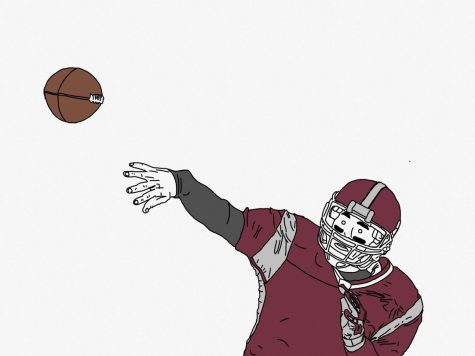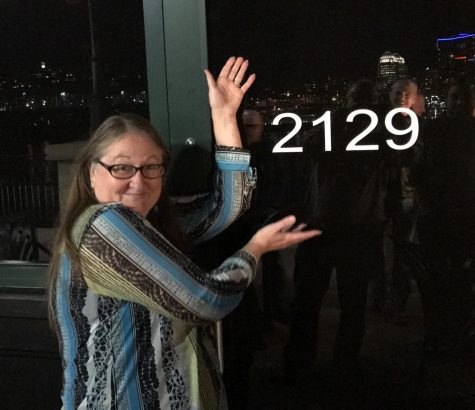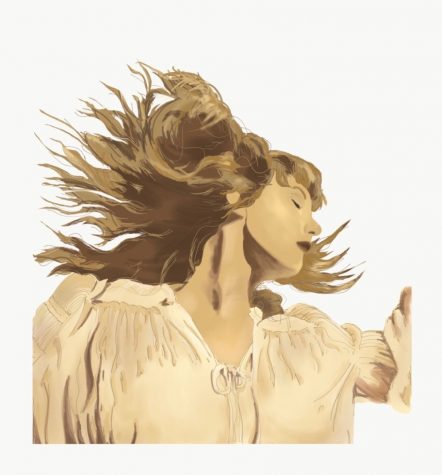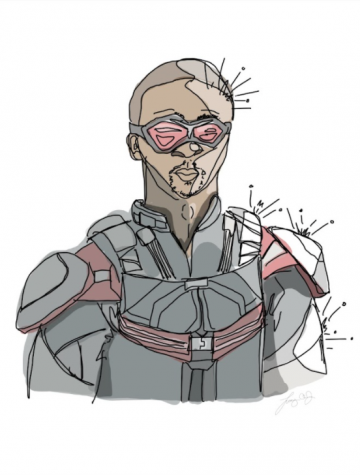In Control with Charlie Warren: nostalgia in games
“Hoo! Yah! Wahoo!” exults Mario as he effortlessly bounds across Rosalina’s Observatory to his next destination. “Click” goes the pointer that draws Mario into the map of the galaxy, allowing me, the player, to select his next destination. “Whirrrrrr,” says the star that I choose, signaling to the game which level I am about to embark upon. After the loading screen fades away, Mario touches down in Gusty Garden Galaxy, one of my favorite locales in one of my favorite games of all time: “Super Mario Galaxy.” As opposed to running through the level with Mario “Jumpman” Mario (sidenote, that is Mario’s official name) as intended, I stand there listening to the music, letting it transport me to a fantastically impossible world. As the violins lift off into the stratosphere in the climax of the song, I finally let Mario start the level. The two of us are old pals by now. This process is purely muscle memory for both myself and Mario. Long jump here, tap the A button there, et violá, yet another perfect run.
As evidenced by the paragraph above, I love “Super Mario Galaxy.” It is easily in my top three games of all time, and it will likely remain close to there for the rest of my time playing games. I got my first copy of the game when I was six years old, and to be completely honest, I was horrible at it. No matter how hard I tried, I just couldn’t get past the first boss of the game: Dino Piranha. Mind you, that boss is a literal newborn that just hatched out of an egg, but I still couldn’t beat it, no matter how hard I tried. I remember shaking my Wii remote furiously at the TV, trying to coordinate Mario’s attacks in the only way a six-year-old video game newbie knows how to: aimlessly. I stopped playing the game out of sheer frustration for a good while, but after an indefinite period of time, I came back and exacted my revenge against the infernal infant that had kept me from playing the rest of the game. The sense of accomplishment from beating Dino Piranha is something that I carry to this day, and whenever I return to “Galaxy,” I feel as if I am recapturing just a little bit of that childhood magic.
In other words, “Super Mario Galaxy” is a very nostalgic game for me, so when Nintendo said, “Hey Charlie, check out this $60 bundle of three old Mario games that have been kinda-sorta remastered for the Switch, one of which is Super Mario Galaxy,” what was I gonna do, say no? Pfft. Suffice to say, there’s now a $60-sized hole in my wallet. The changes that Nintendo made to Galaxy, as well as the two other Mario games included in the “Super Mario 3D All-Stars” bundle, “Super Mario 64” and “Super Mario Sunshine,” were fairly minute. The resolutions, framerates, and aspect ratios of all of the games were improved. However, the extensive graphical overhaul that some had hoped for did not happen. As such, the reaction to “3D All-Stars” was generally positive, yet still mixed. I was happy since the game allowed me to play “Galaxy” on the go with a visual upscale, but some additional content would have definitely been appreciated.
However, all of this brings up a truly interesting and important debate in the videogame industry: are remakes or remasters of old games good? Are companies expanding and improving on beloved classics, or are they desecrating their legacy by exploiting nostalgia for money? These questions have no right or wrong answers, nor can one answer them with a simple “yes” or “no.” Personally, I err on the side of favoring remakes, though I do have a number of reservations about them. Allow me to explain. First and foremost, remaking a game allows for the developers to fully explore some of the concepts they wished to explore in the original version of the game, yet lacked the time, resources, or technology to fully flesh out. For example, the 1993 title “The Legend of Zelda: Link’s Awakening” for the Game Boy is a game whose playability has been greatly undermined by the passage of time. As such, the 2019 remaster of “Link’s Awakening” gave the game a fresh coat of paint and quickly became regarded as the definitive version of that game. Furthermore, that game introduced an entirely new audience not born in the 1980s to a game that otherwise may have been lost. This “deluxe” treatment has the benefit of preserving older titles that have become somewhat unplayable due to older hardware or inaccessible due to the higher pricing of older games.
I am a huge fan of this degree of accessibility offered by remakers, which is why I am also decidedly not a fan of remake pricing. Oftentimes, game companies will decide to charge full price for a remake. Unless that remake offers a significant amount of new content or is remade to the point where it is essentially a new game (e.g. “Resident Evil 2” and “Final Fantasy VII Remake”), this is absolutely unacceptable. Something that I neglected to mention earlier was the price tag of “Link’s Awakening,” which clocks out at a full $60. I felt somewhat guilty for paying that price for a remade game. After all, the core concept of the game was still intact, which should greatly mitigate the amount of time the game spent in development and also the amount of people on the development team. However, Nintendo still charged me $60 for that game, just like they did for many other remade Switch games. I feel even more sorry for those with a nostalgic connection to “Link’s Awakening,” who likely felt even more compelled than I did to purchase this game due to nostalgia.
I hope that remakes continue to get put out, but I also strongly urge companies such as Nintendo to reconsider how they go about selling these games. In case any industry executives get horribly lost and somehow end up reading this article, thank you so much for reading all the way to the end! Here is my one crucial recommendation for remaking the business of remakes. Please price remakes relative to the cost it took to make them. I want to buy your games as do countless others, but if they are too expensive, you are preventing a new generation of gamers from finding a game that means as much to them as “Super Mario Galaxy” did to me. Not only is that morally bankrupt, but it may also bankrupt you if you don’t listen to your consumers. This change may not be a panacea for those who don’t support remakes, but it will go a long way in changing the very split narrative of these games.
Nostalgia is a very powerful tool. It has the ability to fundamentally alter one’s perception of something in a way that nothing else quite approximates. For me, it made a videogame, one of thousands, into something that defines a part of my childhood. I’ve played through “Super Mario Galaxy” many, many times, and I hope that I will play it countless more times in the future. Not only do I wish for that to happen, I wish that remakes become a tool that is decisively used for good through better pricing, even if that is a little quixotic. But as I wait for that day to come, I know that a certain red-clad Italian plumber will be there for me, if I ever need him to be. Come on Mario, let’s-a go play through your game again, shall we?
Hello there! Our goal is to provide relavent, engaging journalism for readers of all ages. Your donation will support the student journalists of the Wolfpacket at Claremont High School, and will allow us to purchase equipment, print our monthly issues, and enter in journalism competitions. We appreciate your consideration!

Charlie Warren is a senior at Claremont High School, where he is currently an assistant sports editor with the Wolfpacket. In terms of extracurriculars,...






